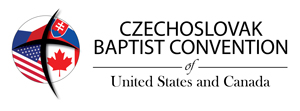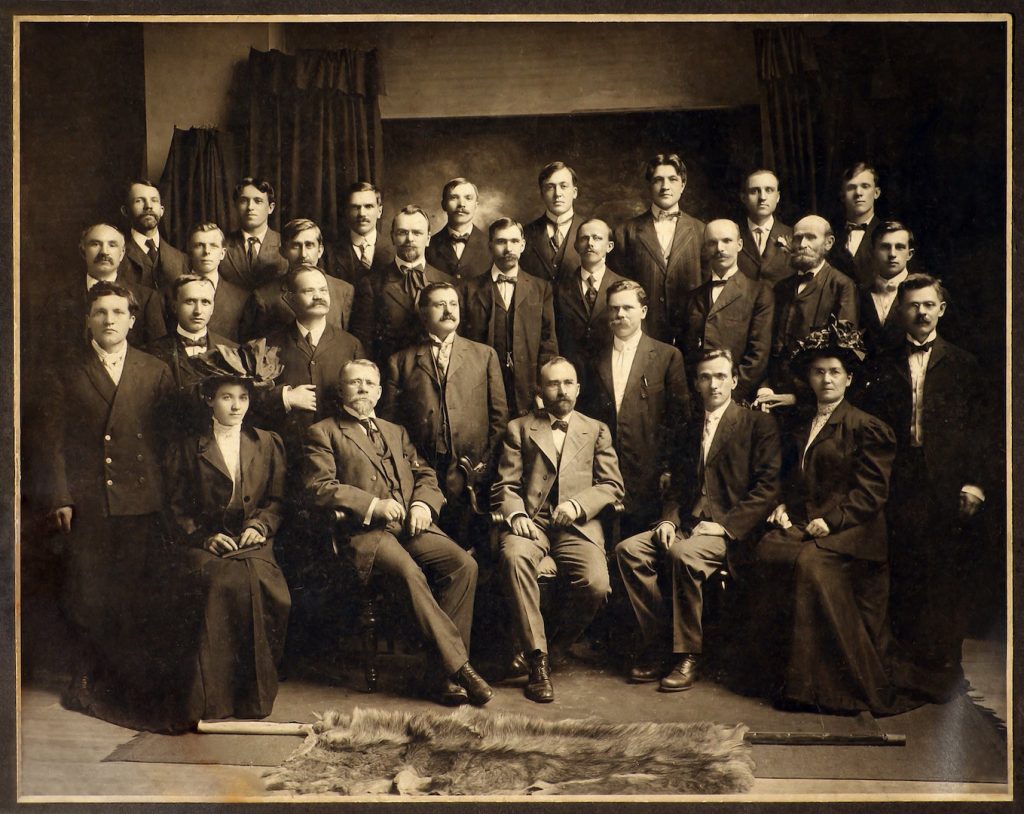The Convention traces its history to beginnings in Chicago, where a growing Czech and Slovak immigration settlement was taking place in the late nineteenth and early twentieth century. German Baptists living in Chicago at that time made early efforts to reach the Slavic community of the city with the Gospel. (Most Slovaks and Czechs who settled in North America were nominal Roman Catholics or secularized “free-thinkers”).
By the turn of the century two Czech-speaking congregations were operating: First Bohemian Baptist Church and the Emmanuel Bohemian Baptist Church. Many more congregations in Chicago and its suburban areas, as well as in other parts of the United States and, later, Canada, soon were springing up.
In the year 1909, the first Slavic Baptist Convention met under the leadership of the Reverend Vaclav Kralicek, then pastor of First Bohemian Baptist Church. Delegates included pastors and lay persons from Polish and Baptist churches. The Convention elected four officers to carry on it initial organizational work. All were clergy: V. Kralicek, president; M. Steucek, vice president; K. Strelec, recording secretary; and, V. Hlad, treasurer.
Three years later, at a convention held in Pound, Wisconsin, members decided that Polish Baptists and Czech Baptists should pursue their work separately. Immediately the Czechoslovak Baptist Convention of America was organized. It met the following year, 1913, in Creighton, Pennsylvania, and has convened annually ever since.
In the early years of Convention life, most energy and activity was directed toward denomination-like concerns: the establishment of congregations and relationship among ministers, development of mission work, organization of a women’s auxiliary and youth associations, discussion of theological concerns, and cooperation in financial matters.
Over subsequent years the Convention has called and sent missionaries to Czechoslovakia and other countries, and in other ways it has always sought ways to support mission enterprises abroad. Soon the Convention saw the need for a communication linkage among the constituency, and so it provided for a publishing ministry. For many years the convention magazine bore the name Pravda a Slavná nadeje meaning “Truth and Glorious Hope.” Currently the periodical, a semimonthly, carries the title Glorious Hope/Slavná nadeje.
During the hardest years of the Communist regime in Czechoslovakia, when political rigidities made contact with the homelands of Central Europe difficult, the Convention turned its attention to Haiti and the support of evangelism and church planting in that Caribbean nation. The focus on Slavic lands, however, never was forgotten. In the 1970’s and 1980’s the Convention turned once again to its first love, supporting Gospel outreach in Czechoslovakia, this time through language-specific broadcasting of TransWorld Radio (TWR), Monte Carlo.
More recently still, the 84th Annual Convention held in Minitonas, Manitoba, 1993, voted to shift funding from TWR broadcasting to the Baptist Unions of the Czech Republic and Slovakia directly. Since 1994, then, on an alternating year basis, the Czech Baptist leadership and the Slovak Baptist leadership make proposals to the Czechoslovak Baptist Convention of USA and Canada for specific financial support.
Projects to which the Convention has devoted funding in recent years include the renovation of retreat facilities in the High Tatra Mountains, development of half-way housing in Olovi for released prisoners, the establishment of a residential facility for the elderly in Litomerice, and the staging of large tent evangelism events in several major cities. In the summer of 1997, the president and executive secretary of the Czechoslovak Baptist Convention visited in the Czech Republic and Slovakia with local Baptist Union leaders, pastors, and congregations in an effort to further solidify the ongoing, long relationship with Baptist brothers and sisters there.

